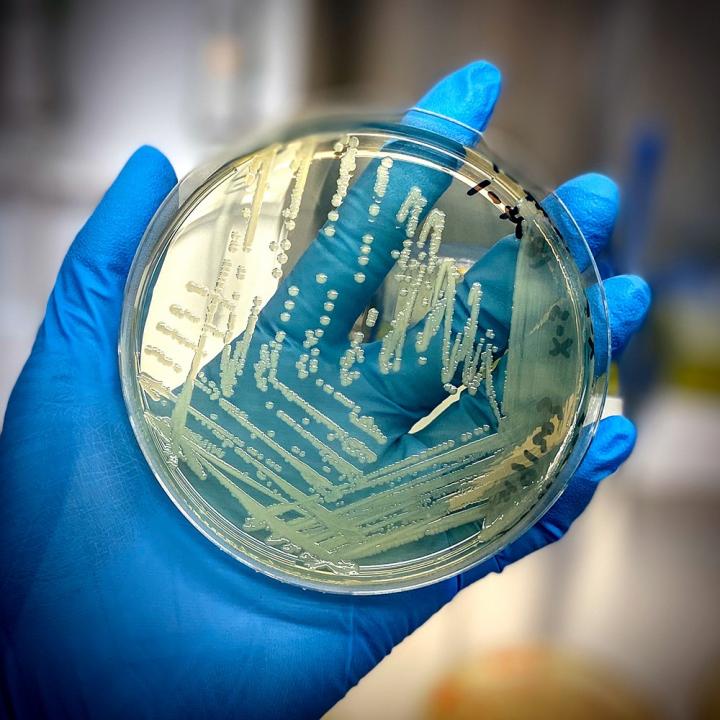
Credit: Mars Global Food Safety Center
ITHACA, N.Y. – Researchers from Cornell University, the Mars Global Food Safety Center in Beijing, and the University of Georgia have developed a method for completing whole-genome sequencing to determine salmonella serotypes in just two hours and the whole identification process within eight hours.
Determining salmonella’s serotype makes it easier for food safety sleuths to find the source of bacterial contamination, which can occur in a wide range of foods, such as fruits, vegetables, nuts, meat, cereal, infant formula and pet food.
“As the food supply chain becomes ever more global and interconnected, the opportunity for food to become contaminated with salmonella increases,” said lead author Silin Tang, senior research scientist in microbial risk management at the Mars Global Food Safety Center in China. “In the fast-moving world of food manufacturing, where rapid identification and response to salmonella contamination incidents is critical, developing a more efficient pathogen identification method is essential.”
Conventional serotyping has been at the core of public health monitoring of salmonella infections for a half-century, Tang said. But long turnaround times, high costs and complex sample preparations have led global food safety regulators, food authorities and public health agencies to change to whole-genome sequencing methods for pathogen subtyping.
All 38 salmonella strains – representing 34 serotypes – assessed in this study were accurately predicted to the serotype level using whole-genome sequencing.
This is important news for the food industry, as very few laboratories can conduct classical serotyping, said Martin Wiedmann, food safety professor and a Cornell Institute for Food Systems faculty fellow.
“In some countries,” Wiedmann said, “it can take up to two days to even get the suspected salmonella to a certified lab.”
With whole genome sequencing, he said, the new state-of-the-art test relies on simple equipment. “For the food industry, processing plants are in the middle of nowhere,” he said. “Now you can conduct testing in a lab that’s close to the food processing plant.”
###
In addition to Silin and Wiedmann, the other researchers on the study that published in the Journal Food Microbiology are Feng Xu, Chongtao Ge, Hao Luo, Guangtao Zhang, Abigail Stevenson and Robert C. Baker of the Mars Global Food Safety Center; and Shaoting Li and Xiangyu Deng of the University of Georgia. Funding was provided by the Mars Global Food Safety Center.
Cornell University has dedicated television and audio studios available for media interviews supporting full HD, ISDN and web-based platforms.
Media Contact
Lindsey Hadlock
[email protected]
607-269-6911
Original Source
https:/
Related Journal Article
http://dx.




